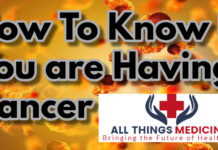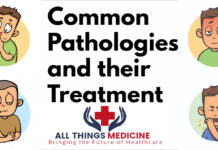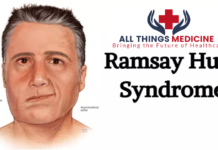Page Contents
Monkeypox is a rare viral disease, native to Central and West Africa. It causes symptoms like fever, body aches and a rash on the skin. Confirmed cases of monkeypox have been reported in May 2022 across several countries including the UK, Canada, Australia and USA.
The rise of cases in non-endemic areas is raising concern and suspicion among health care organizations. According to WHO (World Health Organization), as of late May 2022, the recent cases have shown no travel link but most of the cases have been reported to be amongst men who have sexual intercourse with other men.
What is monkeypox?
Monkeypox is a viral disease caused by a virus called monkeypox virus. Monkeypox virus is a zoonotic virus which means it spreads from animals to humans. An infected human can also transmit the virus to another human.
It is a member of the orthopoxvirus genus of the Poxviridae family, similar to small-pox. The virus gets its name from the time it was discovered for the first time in monkeys kept at a Danish laboratory for research purposes. It is also found in other human primates and rodents.
There are two strains of this virus namely the West African strain and the Central African strain. The Central African strain is more contagious and produces more severe symptoms as compared to the West African strain.
How is monkeypox virus transmitted?

Monkeypox virus is spread through contact with infected animals or humans. It can get transmitted if an infected animal bites or scratches you. The virus can transmit through that break in the skin. It can also get transmitted by coming in contact with bodily fluids, blood or rash of an infected animal.
You can also get it by eating undercooked or raw meat of infected animals.
Human-to-human transmission of monkeypox virus is rare although it can happen. The virus can spread from an infected person to a non-infected person through air droplets. If an infected person sneezes or coughs, air droplets are formed. Any one who breathes in these air droplets, will get infected.
The virus can also spread by coming in contact with bodily floods such as blood or semen of an infected person. If these fluids contaminate any object such as the bedsheet, then any one who uses that bedsheet can also get infected. Close skin-to-skin contact with skin lesions of an infected person can also cause an infection.
Another thing to bear in mind is that monkeypox virus is not a sexually transmitted infection but sexual contact with an infected person can transmit the virus. As the WHO reports show that most of the cases of monkeypox virus include men who have sex with other men.
Monkeypox symptoms

The symptoms of monkeypox begin to present 7-14 days after an individual has been exposed to the virus. The initial symptoms are flu-like symptoms followed by a rash. Symptoms include:
- Fever
- Muscle aches
- Headache
- Chills
- Backache
- Fatigue
- Swollen lymph nodes
Approximately 1 to 3 days after these symptoms appear, they are followed by a skin rash. The rash usually starts off as flat spots on the skin that later become raised bumps. These bumps then turn into blisters filled with pus. The blisters crust over and then eventually fall off.
The rash can appear anywhere including arms, legs, hands and feet. It usually appears on the face first followed by other parts of the body. The symptoms of monkeypox are similar to those of smallpox. However, swollen lymph nodes (lymphadenopathy) appear only in monkeypox.
What are the symptoms of smallpox?
Is monkeypox dangerous?
Monkeypox is not that dangerous. It is usually mild however, children and people with weakened immune systems may develop a severe disease. It resolves on its own in most cases when it is mild. The mortality rate is approximately 10% in Africa. No deaths have been reported among the most recent cases.
Diagnosis
You should visit your healthcare provider if you have had contact with an infected person or if you have developed a rash accompanied by the symptoms listed above. The doctor can make a diagnosis of monkeypox based on your medical history, lab tests and sometimes even a biopsy.
The accurate diagnostic test for monkeypox is PCR testing. A viral swab is taken from any fluid-filled lesion on the skin. Scab scrapings can be taken in case there are no vesicles at the time of testing.
Monkeypox Treatment
There is no specific treatment for monkeypox. There is not much information about using antivirals for it yet. When the disease is mild, it usually clears up on its own within a couple of weeks. The doctor may choose to keep the patient under observation and offer medication to relieve the symptoms.
Children and patients with comorbidities or weakened immune systems should be monitored carefully. The antiviral medications and vaccines used for smallpox can be useful in the treatment of monkeypox.
Prevention
There are a couple of measures that you can take to avoid getting infected with monkeypox virus.
- Avoid coming in contact with any infected animal or human.
- Thoroughly wash your hands in case you have come in contact with an infected animal or human.
- Use alcohol based hand sanitizers to sanitize your hands.
- It is important to keep the infected patient isolated.
- If you absolutely can not avoid contact with an infected person, for example if you are a doctor or the only caregiver of the patient, then wear protective gear such as goggles, masks and gloves.
- Do not share things like bedding, clothes, towels and utensils with an infected person. Keep them separate.
- Do not eat undercooked meat. Cook it fully before eating it.
The takeaway
Monkeypox is a disease caused by a zoonotic virus called the Monkeypox virus. This virus belongs to the same family as smallpox. This disease is native to Africa however a few cases have been reported in multiple countries raising concern. It produces flu-like symptoms followed by a rash. The disease is usually self-limiting and resolves on its own in a couple of weeks.
Recommended Articles













